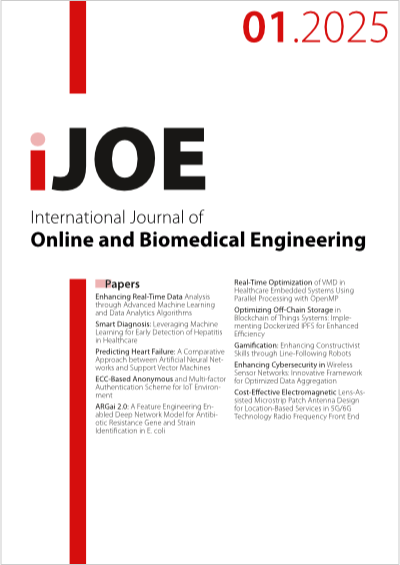Predicting Heart Failure: A Comparative Approach between Artificial Neural Networks and Support Vector Machines
DOI:
https://doi.org/10.3991/ijoe.v21i01.52869Keywords:
machine learning, models, heart failure, predictionAbstract
In recent years, cardiovascular diseases have become increasingly important as a leading cause of death globally. heart failure (HF), a chronic disease affecting some 26 million people worldwide, has become a growing pandemic. Its prevention is a national and global emergency. In India, between 1.3 and 4.6 million adults suffer from HF, and despite advances in therapy and prevention, mortality and morbidity remain high, with significant costs to the healthcare system. The purpose of this study is to conduct a comparative evaluation of ML models for predicting HF. The support vector machine (SVM) and artificial neural network (ANN) models were analyzed to determine which model offers superior accuracy. A dataset from the Kaggle platform with x records and x features was used to train the models. The results indicated that the SVM model is the best predictor of HF with an accuracy of 79%, which far exceeds the ANNs with 77%. It is concluded that the machine learning (ML) method known as SVM shows outstanding and effective performance in the task of predicting heart failure.
Downloads
Published
How to Cite
Issue
Section
License
Copyright (c) 2024 José Luis Herrera Salazar, Magdalena Talla Linderman, Orlando Iparraguirre-Villanueva

This work is licensed under a Creative Commons Attribution 4.0 International License.



